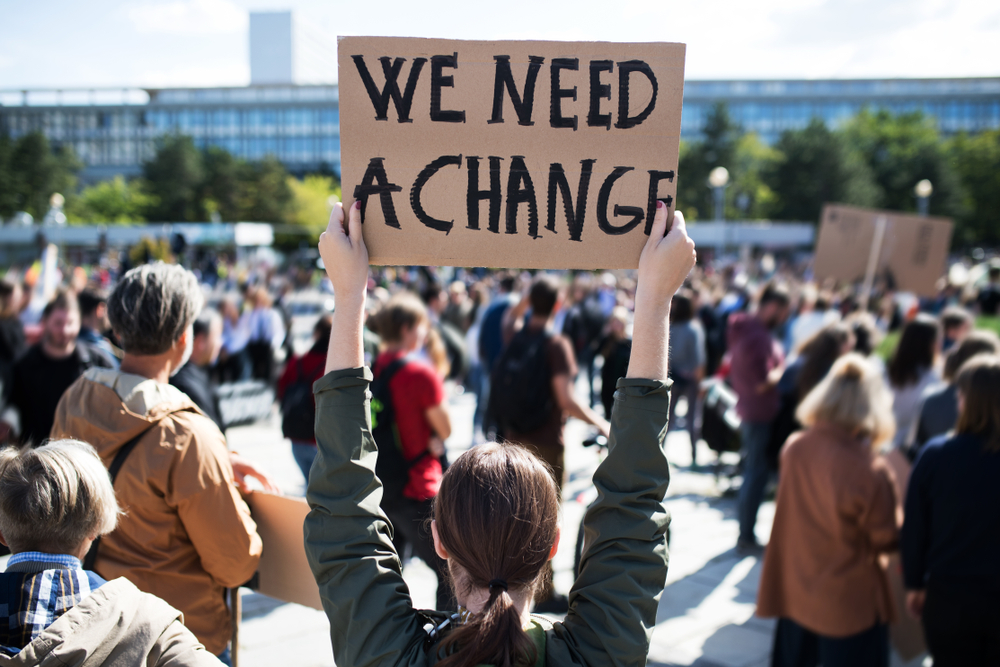Mike Solana, the vice president of the Founders Fund, has written a compelling account of the social consequences of the dominance of social media as a means of communication in this digital age titled, “JUMP.” The title is based on a schoolyard legend from his youth: “Back in elementary school a ‘scientific theory’ hit the playground that blew my mind: [I]f every person in China jumped at the same time, their impact would knock our planet off its axis and the world would end.”
Solana notes that such a scheme was merely a flight of youthful fancy when he first heard it, but now new technologies have emerged to make such an apocalyptic coordination possible:
Today, almost half the global population is connected to the internet by the supercomputing smartphones that live in our pocket. That’s 3.5 billion people … Ubiquitous mobile internet dramatically increased our immersion in media, but ubiquitous social media dramatically increased the speed at which ideas travel and, perhaps more significantly, deeply socialized the dynamic.
Information, disinformation, and narratives now spread globally between billions of people at the push of a button. Solana observes this did indeed occur, for good or for ill, with the COVID-19 pandemic:
There are two reads on how we reacted to the pandemic. First, thank God for the internet. We acted rapidly, shut the world down, and saved tens of millions of lives. In 1918, when the Spanish flu emerged, the speed at which we shut down civilization was not even possible throughout most of the densely populated, undeveloped world. But a hundred years ago, even across the United States and Europe, information was far more difficult to catalogue, to track, and to share. People were cautious. Millions died. The second read on our reaction to COVID-19 is we should never have shut the world down. We didn’t understand the virus, and we still don’t. Now our economy teeters on the brink of global depression, which may itself precede any number of horrors from famine to war. Hundreds of millions could die. The question of how we should have acted, and how we should act for some future, hypothetical pandemic, will undoubtedly consume pundits for years. But neither frame on global paralysis is nearly as important as the fact that it was possible. An idea is now capable of almost immediately crippling the world. There is only one question that should be consuming us today:
What else is possible?
We are now beginning to learn what else is possible with widespread civic unrest in the United States, fueled by videos and rumors circulated over social media. Narratives have emerged about very real problems of policing in the United States entirely unmoored from the actual experience of the vast majority of police and citizens alike. America’s sordid history of slavery and racial conflict has been weaponized into a narrative rewriting America’s founding in the pages of the New York Times and turned into readily sharable social media “content.” The sharing of private correspondence on social media has led to a staff revolt at the New York Times and the disintegration of the board of the National Book Critics Circle.
As Solana points out, this is a recipe not merely for potential end-of-the-world apocalyptic disaster but a steady stream of more chronic local and national disasters:
Short of any kind of truly global, meme-induced disaster, there is the potential for as many personal- or national-scale disasters as can be imagined. The danger, at every scale, is large numbers of people acting rapidly and emotionally on information they just received. The information will almost certainly, by the very nature of new information, be incomplete or inaccurate. Individuals are now routinely targeted by massive, online mobs, sometimes millions strong, after doctored or incomplete information is shared with the malicious intent of evoking such reaction.
How do we act responsibly in this context? We must begin by turning to the study of the scriptures and the study of ourselves as the Apostle James counsels:
Where do the conflicts and where do the quarrels among you come from? Is it not from this, from your passions that battle inside you? You desire and you do not have; you murder and envy and you cannot obtain; you quarrel and fight. You do not have because you do not ask; you ask and do not receive because you ask wrongly, so you can spend it on your passions (James 4:1-3).
We must battle the technology-fueled crises of our time with the ancient piety and technique bequeathed to us by our religious traditions. To emerge from this crisis of institutions and government, we must first govern ourselves.
(Photo credit: Anthony Crider. CC BY 2.0.)

